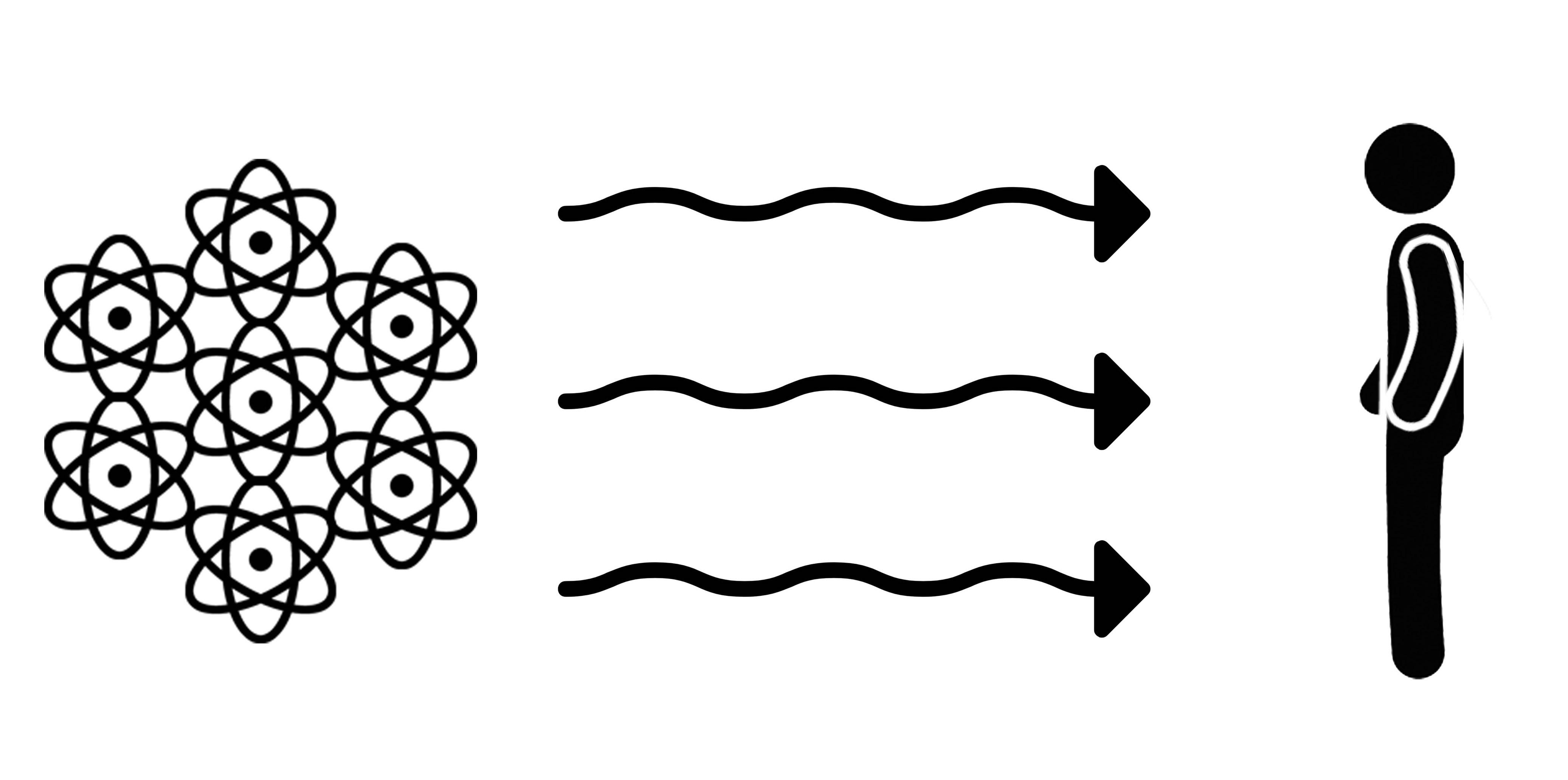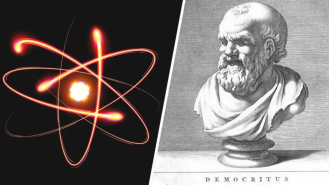Philosophers love “The Matrix”.
It’s the perfect introduction to the ideas of big names such as Plato and Descartes but with leather trench coats, bullet time, and a brooding Keanu Reeves. One of the most memorable moments in the movie comes near the end when the protagonist, Neo, finally understands the Matrix for the illusionary simulation that it is. Now, he can see the numbers underpinning everything. He can see the source code of the world.
With only the slightest of modifications, Neo’s epiphany is no science fiction at all. This is how the world is made. But, where Neo saw green, floating numbers, we now know the universe is actually made up of tiny, imperceptible objects. Rather than code, we have atoms—the building blocks of everything there is, ever was, and ever will be.
We know atoms exist thanks to scientists and electron microscopes, but the idea goes much further back than that. It goes back to the ancient Greeks. Their output was prodigious. Almost every discipline you can study, the Greeks turned their minds to first. Pythagoras laid the foundation for math and geometry, Aristotle contemplated biology and physics, Plato thought about governance, Herodotus was a historian, and Hippocrates gave doctors his eponymous oath. But one of the most ingenious “firsts” must come with the atomists, like Democritus or Epicurus.
It’s odd to think that millennia ago, a few bearded men in togas, strolling around a sun-bleached agora, used philosophy to establish the fundamental fabric of the universe.
Although the idea of “the atom” had been floating around the Peloponnese for a while, Democritus was the first to articulate it fully. He argued that atoms must exist because the alternative is sheer nonsense. If we could constantly divide or cut a thing into two then we would go on forever. We’d get smaller and smaller all the way to infinity, and there’d be no end point. But the universe can’t be built without foundations. Nothing can come from nothing. So, there must be a fundamental unit to the world from which everything else is made, and for this, Democritus coined the term “atom” (which literally means uncuttable, although 20th Century scientists learned how to split one, rather ruining the definition).
The question now facing Democritus was how these basic, imperceptible atoms came to make the objects we all see, touch, and love. He noted how, when we look at the world around us, we can see it constantly changing, shifting, dying, and growing. The world flows. So atoms, which make up everything there is, must themselves be moving. They can’t just be inert or still.
Democritus argued that atoms come together in various combinations, and then emit something called an “eidôla.” These composite blobs of atoms radiate eidôla outward, like ripples in water. The eidôla are then picked up by us as the subjective experiencer and we translate this atomic radiation into ideas or sensations.

For example, let’s imagine a group of atoms come together and, with a special wiggle, emit their eidôla. This flies through the space (or “void,” as Democritus called it) to our eyes. Our eyes then whizz this eidôla along to our understanding, where it’s converted into “blue” or “round” or “big.”
There were two big implications to Democritus’ theory.
First, the world as we know it doesn’t actually exist. Just like the code in the Matrix, the world is really just incomprehensible atoms. Our minds create “reality” out of these atoms, and everything is just an illusion we play on ourselves.
Second, the world is entirely made up of atoms. The tree outside, your pet turtle, your feeling of love, and even the mind that processes eidôla are all made up of atoms.
The upshot of this is that Democritus was one of the first “determinists” in that he thought there could be no free will or choice. We’re all just marbles, bouncing around to the laws of physics.
We might think this a pretty depressing place to finish, yet Democritus was actually known as “the laughing philosopher.” He simply refused to take anything seriously. If reality was ultimately the invented story of our minds, and the universe was just physical laws, what’s the point in getting wound up by things? Why stress about that email from your boss, or that mean thing a friend said when there’s nothing we can do anyway? If the world is an illusion, and a boringly scripted one at that, why not laugh?
The first “atomist,” Democritus, of course got a lot wrong, but it’s remarkable how much he got right. By reflecting on reality long enough, he came to conclusions that scientists proved millennia later. If nothing else, he offers a shining example of the power of contemplation.
Jonny Thomson teaches philosophy in Oxford. He runs a popular Instagram account called Mini Philosophy (@philosophyminis). His first book is Mini Philosophy: A Small Book of Big Ideas.
This article was reprinted with permission of Big Think, where it was originally published.






